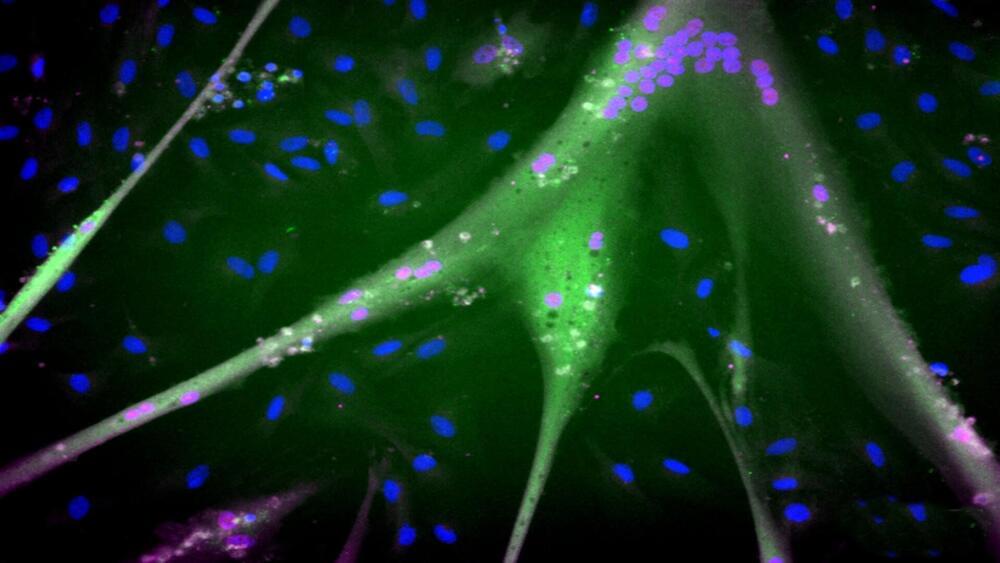The findings suggest the star Fomalhaut may have orbiting planets hidden among its rings of debris.
Some GPU cryptomining outfits, having survived a bleak winter of discontent, have started to grasp AI acceleration opportunities.
An international team of astronomers including several Dutch researchers has observed, for the first time, the benzene molecule (C6H6) in a planet-forming disk around a young star. Besides benzene, they saw many other, smaller carbon compounds and few oxygen-rich molecules. The observations suggest that, like our own Earth, the rocky planets forming in this disk contain relatively little carbon. The scientists published their findings in the journal Nature Astronomy.
The researchers studied the young, small star J160532 (one tenth of the mass of our sun) some 500 light years away from us towards the constellation Scorpio. Around such small young stars, many rocky planets similar to Earth form, in disks made of gas and dust. Until now, it has been difficult to study molecules in the warm inner part of these disks where the majority of planets form due to the limited sensitivity and spectral resolution of previous observatories.
For their research, the scientists used data from the MIRI spectrometer aboard the James Webb Space Telescope. MIRI can see right through dust clouds and is particularly well suited to measure hot gas in inner disks. The main optics of the MIRI spectrometer were designed and built by the Netherlands Research School for Astronomy (NOVA).
Researchers at Tufts University developed immortalized bovine muscle stem cells for cellular agriculture, potentially overcoming scaling challenges for meat production.
Andrew Stout, Tufts University.
Currently, it is difficult and expensive to produce cell-cultured meat because muscle and fat cells need to be able to grow and divide rapidly. Normal muscle stem cells can only divide about 50 times before they stop dividing and die. However, immortalized cells developed by the TUCCA team can divide indefinitely, which means they can produce much more meat.
That may just be all that the company has to offer right now.
Google’s I/O event which is currently underway is the platform for the company to showcase how it plans to take on the might of Microsoft in the next frontier of technology, artificial intelligence (AI). What the company’s loyal followers seem to have gotten is a rebranding of its AI tools for Docs and Gmail, The Verge.
400tmax/iStock.
The company offers features such as a large window dome with a view of space, internet access via onboard Wi-Fi, and a dedicated room for exercise and rest at Haven-1.
We have entered a brand new era of space exploration, from flying a chopper on Mars to re-directing an asteroid’s trajectory to retrieving soil samples from a distant space rock.
The future of space is dynamic, with technological prowess allowing science fiction-inspired ideas to become reality. And next-generation space outposts are one such area that has piqued the interest of space startups. Especially since the International Space Station (ISS) is scheduled to be decommissioned by the end of this decade.
China is developing the fully reusable Long March 9 rocket, which will have a similar design to Starship.
A team of rocket scientists in China reportedly provided an accurate diagnosis of the problem that caused Starship to spiral out of control before Elon Musk’s SpaceX released its own official statement on the massive Mars rocket, a report from the.
The fully-integrated Starship launch system spun out of control shortly after it first took to the skies, on April 20, in what was an otherwise successful first flight test.
As per the company, traditional rovers may not be able to traverse everywhere and perform tasks like their drone-like hopper.
For decades, Earth’s natural satellite has been one of the most popular destinations for space exploration. The upcoming Artemis missions, along with the excitement on establishing a human settlement on the Moon, have collectively boosted the lunar economy market substantially in recent years.
Several startups have been preparing to offer their technological solutions to gain a better understanding of the valuable resources available and provide services to future astronauts.
LOS ANGELES, May 8 (Reuters) — Amazon.com (AMZN.O) is offering U.S. customers $10 to pick up a purchase rather than have it shipped to a home address, as the e-commerce giant joins other retailers in racing to slash costs for home delivery and returns amid slack consumer demand.
Amazon said the promotion is not a cost-cutting measure and that it applies to customers who have never used Amazon Pickup or have not used that service in the last 12 months.
“We offer customers a variety of ways to get their packages, inclusive of delivery and pickup options. The $10 Amazon Pickup promotion isn’t new,” the company said in a statement. Amazon did not say for how long this or similar pickup promotions have been in use.
As the International Space Station nears the end of its life, SpaceX and Los Angeles-based startup Vast have unveiled a plan to launch the first commercial space station.
SpaceX will use a Falcon 9 rocket to send the station’s main module, Haven-1, into low-Earth orbit as early as August 2025.









